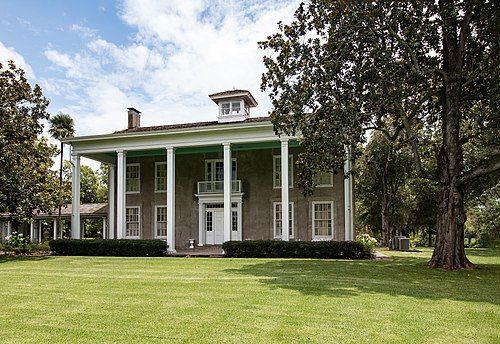Here we go again….The Texas Historical Commission has removed more than two dozen race-related books from the gift shops of two former slave plantations because one white woman was offended. But you won’t believe what she was offended about? Michelle Haas says slave books being sold in the Varner Hogg Plantation focused too much on the slaves and not enough on the white enslavers.
Insert huge sigh here.
Reportedly, Haas, a white amateur historian, began emailing a commission board member after visiting the Varner-Hogg plantation last year. There, she watched a video that she said focused too much on slavery at the site and not enough on the Hogg family, which had turned its former home into a museum celebrating Texas history. She’d also seen books in the visitor center gift shop written by Carol Anderson and Ibram X. Kendi, two Black academic historians who have been outspoken on the issue of systemic racism. Haas, who has spent months fighting “critical race” and “woke” theories, contacted the Texas Historical Commission, the agency that oversees historical sites at the direction of leaders appointed by Governor Greg Abbott.
After months of emailing her complaints, the Texas Historical Commission no longer sells “White Rage” by Anderson or “Stamped From the Beginning” by Kendi, or 23 other works to which Haas later objected, at two former slave plantations in Brazoria County, including Varner-Hogg. Among the literature no longer available for purchase is an autobiography of a slave girl, a book of Texas slave narratives, the celebrated novel “Roots” by Alex Haley, and the National Book Award–winning “Invisible Man” by Ralph Ellison.
Titles reportedly removed included: “Remembering the Days of Sorrow,” a book of slave narratives; “Invisible Man,” the Ralph Ellison novel on the Black experience; “Stamped from the Beginning,” a history of racist ideas by Ibram X. Kendi; and “Roots,” the Alex Haley novel famously adapted for television in the 1970s. Yes, she was offended by “Roots.”
The Texas Historical Commission is a state agency overseeing the preservation of certain historical sites across the state. The magazine Texas Monthly broke the story and reported that Haas thought the Varner-Hogg plantation presented too much information about the enslaved Black people who worked the sugarcane fields and not enough about the white people who lived in the main house. She later reportedly emailed David Gravelle, a commission’s board member, a list of titles she did not like that were available at another nearby historical site, the Levi Jordan plantation.
Haas is the author of a book of her own, titled “200 Years a Fraud,” which takes the text of the “12 Years a Slave” memoir and points out what she considers historical inaccuracies in the primary author’s account of his own life. Haas, a Corpus Christi native, has spent years critiquing historical narratives about slavery. In 2006 she cofounded Copano Bay Press, an independent publishing house specializing in firsthand accounts of Texas history. She wrote and published 200 Years a Fraud, a full annotation of Solomon Northup’s 1853 memoir Twelve Years a Slave, which was made into an Oscar-winning film in 2013. In her book, Haas disputes Northup’s account of his life and argues that many U.S. histories are overly harsh to the South and do not acknowledge that slavery was “a socially acceptable and economically worthwhile practice worldwide at the time our thirteen colonies arose.”
In 2022, Haas launched the Texas History Trust, a nonprofit advocacy organization that aims to fight back against what it describes as “historical societies, university history departments and authors who warp Texas history based on feelings, not the historical record.” She has protested the
She has protested the inclusion of so-called “woke ideology,” “neo-Marxist” influence, and critical race theory in Texas schools, even though CRT—a framework for examining systemic racism, for example in lending patterns—is not taught below the college level in the Lone Star State.
Gravelle reportedly took up Haas’ complaints with the board, claiming he feared the Republican-controlled state legislature would be upset if lawmakers found out about the titles on offer.
A spokesperson for the commission pinned the change on a general reduction of inventory.
Of the titles in the list she sent, seven were historical books that are about or feature sections on slavery and white supremacy—three of which touch on slavery in Texas, specifically—and two are historical novels on the same subjects. Most of the 23 books Haas listed were written by Black authors.
Haas also criticized the Varner-Hogg Museum for not focusing enough on slaves who had perpetrated violence against each other at the behest of their enslavers. “Several of the static exhibits at Varner detail the torture inflicted upon the enslaved people who labored there but omit the fact that the chief torturer was one of the slaves,” Haas wrote.
This should come as no surprise, though. After all, this is how we do it in Texas. One white woman can whitewash years of Black history.



